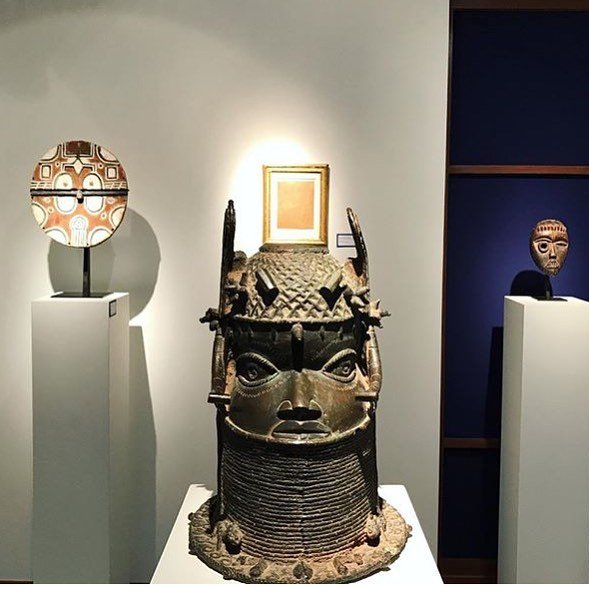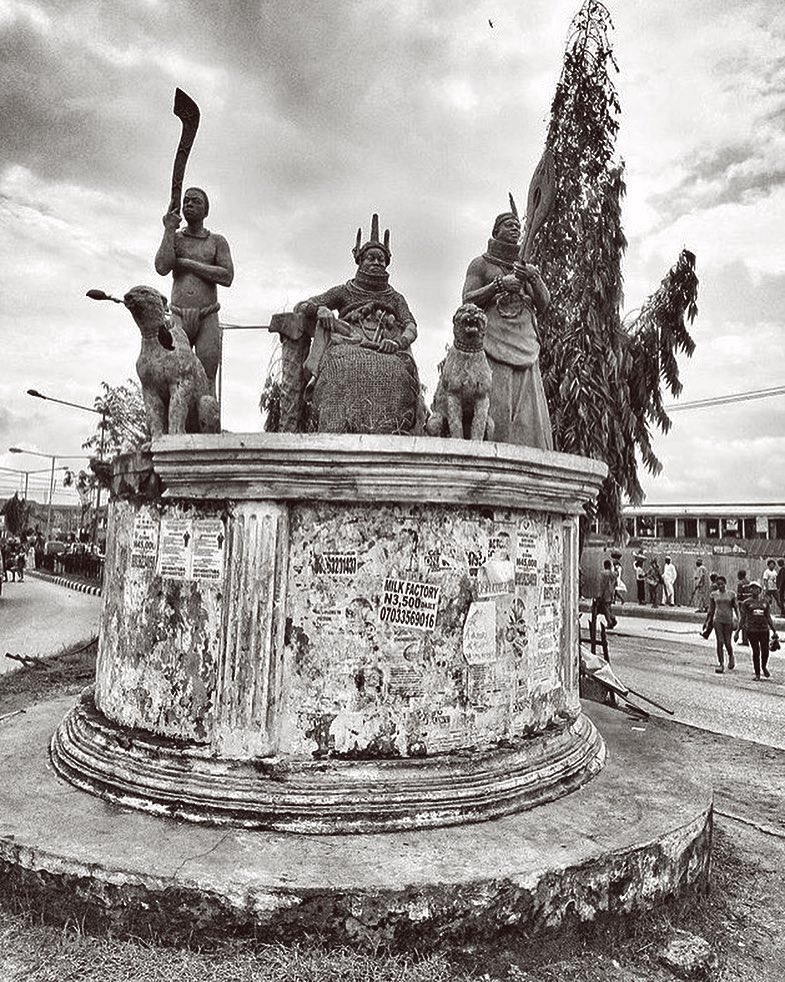The Benin people of Nigeria hail from the formally called Benin Empire pre-colonially located in what is now southern Nigeria. The Benin Empire was one of the oldest pre-colonial empires with capital Benin City. The origin of the Benin people seem to have been lost with myths and folktales as many stories have come up over the years as to how the Benin people came to be, even to the point that some historians claim that the Binis originated from the lower river Nile area in Egypt due to the similarities between Egyptians and the Binis such as hairstyles of titled chiefs, queens and artwork. In Benin mythology, Osanobu and olokun are associated with health, wealth, life and every good thing while Oguiwu is associated with evil. Death, mourning. The significance of both come from ancient stories and tales of the cosmological account of the origination of the Benin Empire.
The original founders and people (Binis) of the Benin Empire and rulers or kings (monarchs) were commonly known as the Ogiso or Ogie-iso meaning king from heaven or king of the sky, the king Oba having a verbal formidable monarchy authority ruled the Empire. Benin City was the seat of power of the ancient Benin Empire and was one of the most powerful empires in Africa during the 15th 16th century. Generally speaking, the traditional leadership of the Benin Empire evolved over the centuries in the 15th century, the twelfth Oba Ewuare the great reigned and it was during his regime that Ubine known as Benin City was formed.

The Benin Empire where the first to get into contact with foreigners. In 1485 Joao Afonso de Aveiro a Portuguese explorer was the first foreigner to make contact with the Bini people and built a strong trade relationship trading tropical products such as pepper, ivory and palm oil for European guns, manila and so on. The king of Portugal sent Christian missionaries next and in the 19th century some Bini’s could speak fairly and understand Portuguese the trading relationship between the people of Benin and the Portuguese was a favorable one. However the British visited the Binis on their first expedition in in the 1550’s and hit off a trade relationship and in the 1880’s, when the Oba suspected the British of colonial tendencies, all communications with the British explorers and traders ceased. Not long after that in the 1890’s the Benin Empire was attacked by British troops which looted, burned and captured them, bringing the Empire to ruins.
The fall of the Benin Empire came as a result of the advent of British colonialism and after Nigeria gained her independence in 1960, restructuring the country became very important, therefore, Edo state was coined out of Bendel sate which comprised of a region of the now Delta and Edo State, Benin City however remained the capital and seat of power as the monarchy and political systems of governance continue till date, the Oba of Benin and his council of Chiefs have a palace located in Benin city and festivals and rituals such as coronations and so on still take place till date. The traditional religion is still very much practiced in present day Benin alongside the Islamic and Christian religions.

The culture, customs and traditions of the Benin people live on till present day Nigeria and is still displayed to its fullest during wedding ceremonies, coronations, festivals such as the Igue festival and so on. Coral beads which is synonymous to the Edo people is still widely purchased and adorned, also, the traditional attires, the Bini bronze, brass, terracotta, ebony wood and ivory depict the lifestyle of the ancient and also the modern Benin Empire.




